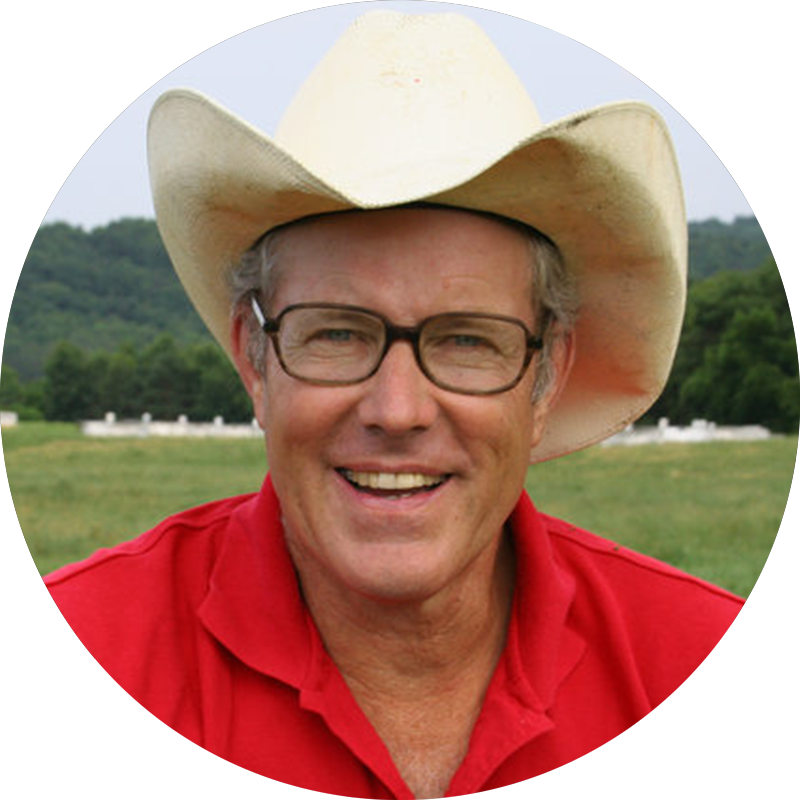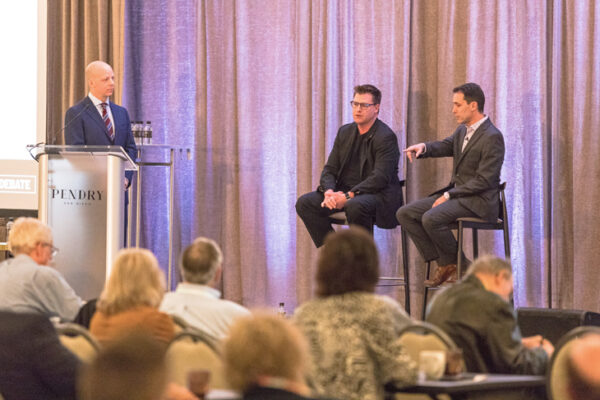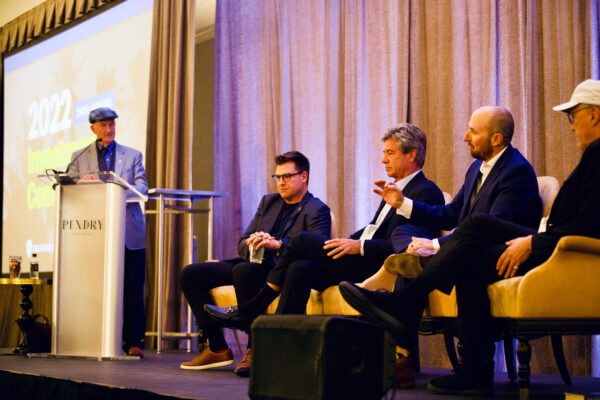The Discomfort of Freedom
Maverick investors, teachers, doctors, name the vocation – the ones who dare to march to the beat of a different drummer – suffer nasty retribution from the orthodox folks.
As a farmer, and an unorthodox farmer at that, I’ve received some of the most aggressive pushback not from chemical companies or pharmaceutical companies, both of which I chastise with abandon, but rather from fellow farmers.
“How dare you disparage farmers?” they retort when I dare to suggest we’re not all for one and one for all.
Nothing in Common
I have practically nothing in common with a modern conventional farmer.
Today’s agriculture orthodoxy assumes life is fundamentally mechanical rather than biological. It believes that as smart humans, we have the right and even the mandate to take life apart like an engine and switch pieces around. If we can figure out how to take the stress gene out of a pig, we should do it so our factory farming arena won’t cause stress anymore.
Current agricultural orthodoxy assumes that wellness comes out of a syringe or pill bottle. I, on the other hand, think nature’s default position is wellness. If it’s not well, I probably did something to mess up immunological function. It could be anything from incorrect habitat to incorrect parents (genetics).
The average farmer, when confronted with a sick animal, questions first whether or not he used the right vaccine or medication.
Farmers in my community call me Typhoid Mary and a bioterrorist because they assume my unvaccinated, pastured animals will get sick and a red-winged blackbird will transport that sickness to their scientific confinement houses.
My heart goes out to these folks because they genuinely think they might lose their farms and livelihoods because of my negligence.
This issue pushes our understanding of freedom.
A Question
Let me ask you something…
What does someone have to do that’s bad enough for you to ask for governmental intervention?
If I knew someone tied up their children and administered intravenous cocaine, I might call the sheriff. Are you with me? But what if a parent didn’t bathe their baby? Or give their child vaccinations?
My tension in the farming community is a practical stretch for what freedom means.
Freedom ends when your hand hits my nose. That’s simple.
The problem with freedom is that it puts us in uncomfortable situations that we have to tolerate.
For example, I really think when my neighbor coats his farm upriver with Roundup that it’s not good for my health or my land.
But do I lobby the government to outlaw the practice because I don’t like it… because I think it’s damaging?
When that neighbor actually thinks that my unvaccinated cows and chickens jeopardize his farm’s future and his family’s livelihood, should he seek regulatory redress?
The thorny reality is that things aren’t black and white most of the time. Bad and good are highly subjective.
Freedom demands that government intervention must be limited to the most egregious and obvious situations.
Creating Tyranny
Throughout my life I’ve been vilified by farmers when I refuse to lump us together in the “all for one, one for all” mentality.
No, I say. Some farmers are good, and others are bad.
Good farmers don’t feed the dead zone in the Gulf of Mexico.
Good farmers don’t view wildlife as a liability.
Good farmers don’t facilitate superbugs and antibiotic resistance with subtherapeutic antibiotics.
Good farmers don’t stink up the neighborhood or flush manure down the river.
The large umbrella farm lobby organizations, like the American Farm Bureau Federation, National Cattlemen’s Beef Association, National Corn Growers Association and their buddies, make a big deal of speaking for ALL farmers as if the National Education Association speaks for ALL teachers.
But if people in these vocations cannot practice differently and promote a different protocol, then we have tyranny and not freedom.
Leave Me Alone
In my experience, whenever we ask for a government remedy of some perceived unfairness or assault, the relief never justifies the corrective intervention.
This is why I tell my militant buddies in the ecological food tribe that I won’t picket McDonald’s or dump manure on its parking lot.
All I want is to be left alone. That means I must leave alone the people with whom I violently disagree.
Do I think Roundup should exist? No.
Do I think Tyson chicken houses should exist? No.
But I’m embarrassed when foodie friends want to outlaw factory farms. These are bad farms and bad farmers, yes, but if we ask for government intervention to remedy our offense, what happens when our side does something that creates an outrage du jour?
Like maybe we don’t want to vaccinate our cows. Or maybe we want to spread compost instead of 10-10-10 chemical fertilizer.
The only way a society can maintain freedom is for the citizenry to agree that suffering offense is the lifeblood of liberty. As soon as suffering offense becomes intolerable and demands governmental remedy, we sacrifice our freedom on the altar of personal preference.
Those of us who love freedom should be outspoken about the things we reluctantly tolerate, even things we find reprehensible, in order to preserve freedom for tomorrow’s oddballs.
All innovations and antidotes germinate from uncomfortable and disruptive paradigms and practices.
Preserving and embracing difference is the lifeblood of freedom.
That means I’ll be happy when you do things with your life, your children, your possessions that I find reprehensible.
That’s my gift of freedom to others.
Editor’s Note: Do you agree with Joel that freedom means taking the good with the bad? Where would you draw the line? Tell us here.
[adzerk-get-ad zone="245143" size="4"]About Joel Salatin
Joel Salatin calls himself a Christian libertarian environmentalist capitalist lunatic farmer. With a room full of debate trophies from high school and college days, 12 published books, and a thriving multigenerational family farm, he draws on a lifetime of food, farming and fantasy to entertain and inspire audiences around the world. He’s as comfortable moving cows in a pasture as he is addressing Fortune 500 CEOs at a Wall Street business conference. A fierce defender of personal freedom and choice, he brings an unorthodox viewpoint that readers of Manward Digest can’t get enough of.






